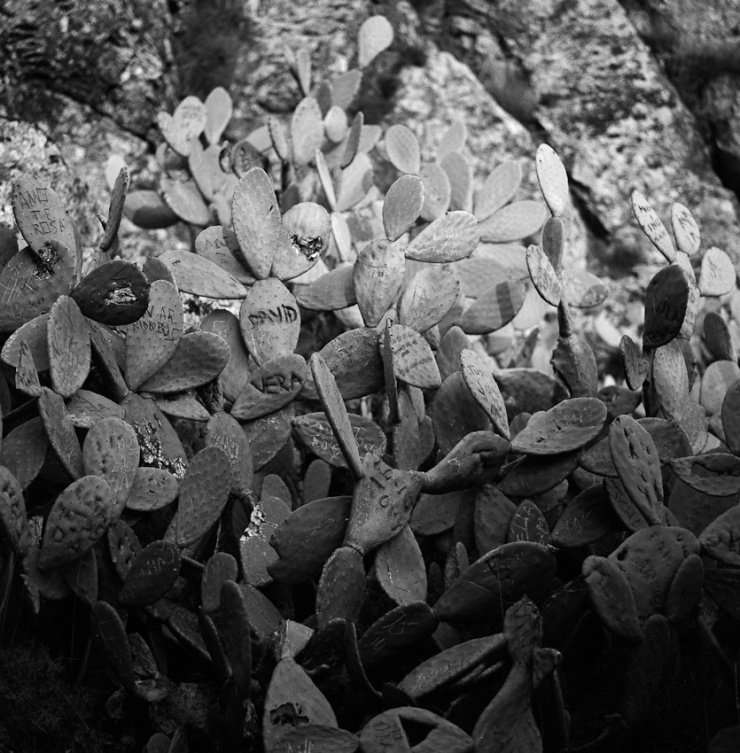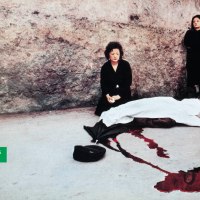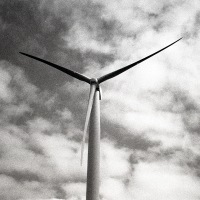 © Pedro Guimarães, Mrs. Iria burning dry organic waste in her parcel of land, Monsanto, Portugal
© Pedro Guimarães, Mrs. Iria burning dry organic waste in her parcel of land, Monsanto, Portugal
“Monsanto Blues is a project that depicts daily life in Portugal’s ‘most typical village’. Once a thriving self-sufficient community located in the interior of Portugal, Monsanto became a good metaphor to describe the impact of recent social developments on European peripheral economies (aka PIGS). With virtually no births nor new inhabitants registered for several years now, Monsanto is expected to be declared deserted land soon, thus creating great investment opportunities for both new agers and senior tourists from Northern Europe.”
 © Pedro Guimarães,‘For Sale’ sign painted on an old house’s wall, Penamacor, Portugal.
© Pedro Guimarães,‘For Sale’ sign painted on an old house’s wall, Penamacor, Portugal.
 © Pedro Guimarães, Widows posing after sunday’s mass service, Monsanto, Portugal
© Pedro Guimarães, Widows posing after sunday’s mass service, Monsanto, Portugal
 © Pedro Guimarães, Cactus with engraved names and dates, Penha Garcia, Portugal.
© Pedro Guimarães, Cactus with engraved names and dates, Penha Garcia, Portugal.
“Monsanto is a small village located at the top of a prominent granitic mountain in the interior of Portugal, very close to the Spanish border. Inhabited since the early Stone Age, as soon as King Afonso Henriques conquered it from the Moors in the beginning of the 12th century, the village began to enjoy an important role in the expansion of the Portuguese borders (and Christianity) in the Iberian Peninsula. In 1938 it was declared by the regime’s propaganda office as the “most Portuguese village of Portugal” – an award that has its origins in the idealistic agenda of the right-wing authoritarian regime presided at the time by António de Oliveira Salazar. But despite its connotations, it is a label that persists until today.
Along with the promises of the so called modernity, the entrance to the EU in 1986 also dictated the slow and agonizing decline of the Portuguese agricultural (and fishing) industries: in the name of progress and the so called “Common Agricultural Policy”, the EU offered Portuguese farmers generous subsidies that were meant to reduce, and in most cases fully halt, the production and trade of food commodities, thus favoring economy scale producers like France, Spain or Germany. The reason behind this policy was to equalize EU’s agricultural market, making the Eurozone a more competitive player in a globalized context.
Despite having lost its geopolitical strategic importance in modern days, Monsanto had remained a relatively important provider of labour force and of food products (like meat, cereals, wine and olive oil), helping Portugal reduce it’s dependency on foreign commodities – a tendency that suffered an inversion during the last decades. Once a desirable and productive land, Monsanto, like many other rural communities in Portugal, turned into an impoverished desert of granitic shapes and neglected olive trees.
As today, its population is constituted almost exclusively by elderly widows living in monastic isolation. In a little more than 30 years, its population is expected to virtually disappear.”
More of Pedro’s work here







Obrigado pela divulgação! E então, o que tens achado do doutoramento? Desculpa lá responder por aqui mas o facebook por algum motivo não me quer deixar responder…